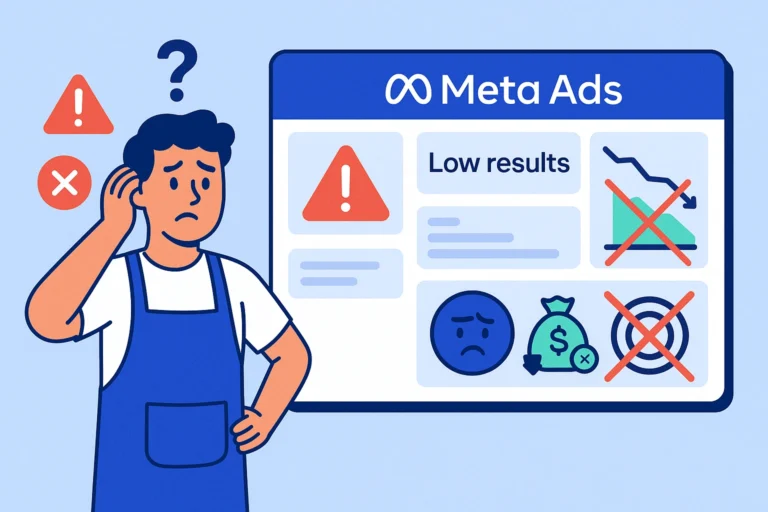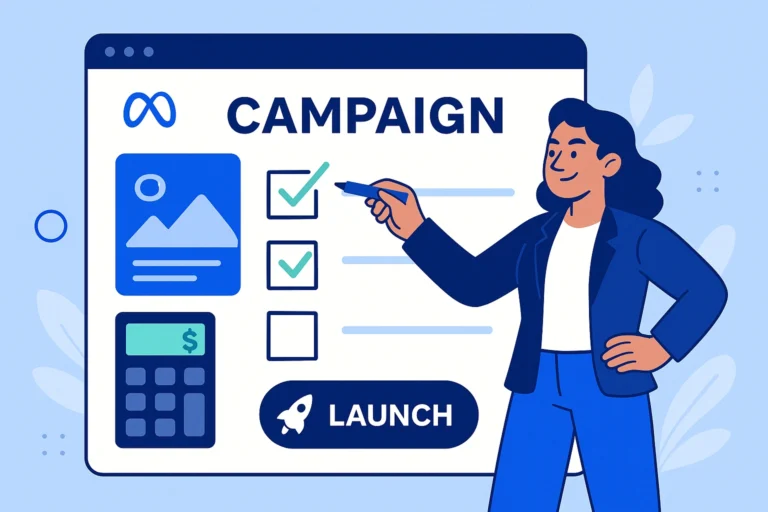When it comes to digital advertising, Meta Ads (Facebook & Instagram) and Google Ads (Search & Display) are two of the biggest players. But which one is right for your business?
Both platforms offer unique strengths and serve different marketing goals. In this blog, we’ll break down the key differences, benefits, and use cases to help you decide where to invest your ad budget.
Meta Ads: Best for Demand Generation & Visual Engagement
Meta Ads appear on:
- Facebook feed
- Instagram stories, reels, and posts
- Messenger and audience network
These ads work best when:
- You want to build brand awareness
- You have visual products or services
- You want to retarget or build lookalike audiences
Pros:
- Powerful audience targeting (interest, behavior, location)
- Great for B2C, local businesses, and eCommerce
- Strong creative tools: carousel, video, stories
Cons:
- Users aren’t actively searching to buy
- Requires strong visuals and messaging
Google Ads: Best for Intent-Based Search & High-Converting Leads
Google Ads appear on:
- Google search results (text ads)
- YouTube (video ads)
- Display network (banner ads on websites)
These ads work best when:
- You want to target people actively searching for your product/service
- You want to drive high-intent traffic to your site
Pros:
- Keyword targeting = warm leads
- Great for service providers, local searches, B2B
- Immediate visibility on Google search
Cons:
- Can get expensive in competitive niches
- Less visual impact (search ads)
Which Platform Should You Choose?
Here’s a quick side-by-side based on goals:
| Goal | Best Platform |
|---|---|
| Brand awareness | Meta Ads |
| Lead generation (B2C) | Both (start with Meta) |
| Local service visibility | Google Ads |
| Product sales (eComm) | Meta Ads |
| Warm traffic retargeting | Meta Ads |
| High-intent lead capture | Google Ads |
The Winning Combo? Use Both Together
Smart businesses don’t choose one or the other—they combine both:
- Run Google Ads for people actively searching
- Run Meta Ads to build brand awareness and retarget visitors
For example:
- A real estate agent uses Google Ads to attract buyers searching “homes in Austin”
- Then uses Meta Ads to retarget those who visited the site but didn’t call
Budgeting Tip
If you’re new, start small:
- Meta Ads: $5-$10/day for awareness or retargeting
- Google Ads: $10-$15/day for high-intent keywords
Track ROI for 2–4 weeks, then scale what’s working.
Let Us Help You Decide
At Targeted Audience Solutions, we specialize in crafting custom ad strategies that combine the best of both worlds. Whether you’re leaning toward Meta Ads or considering a hybrid approach, we can guide you.
Check out our pricing or get a custom quote.
Final Thoughts
There’s no universal winner between Meta Ads and Google Ads. The right choice depends on your business model, goals, and audience.
Meta excels at visual storytelling and audience building. Google dominates when users are ready to take action.
Use the strengths of each to your advantage—and you’ll win no matter which platform you start with.




